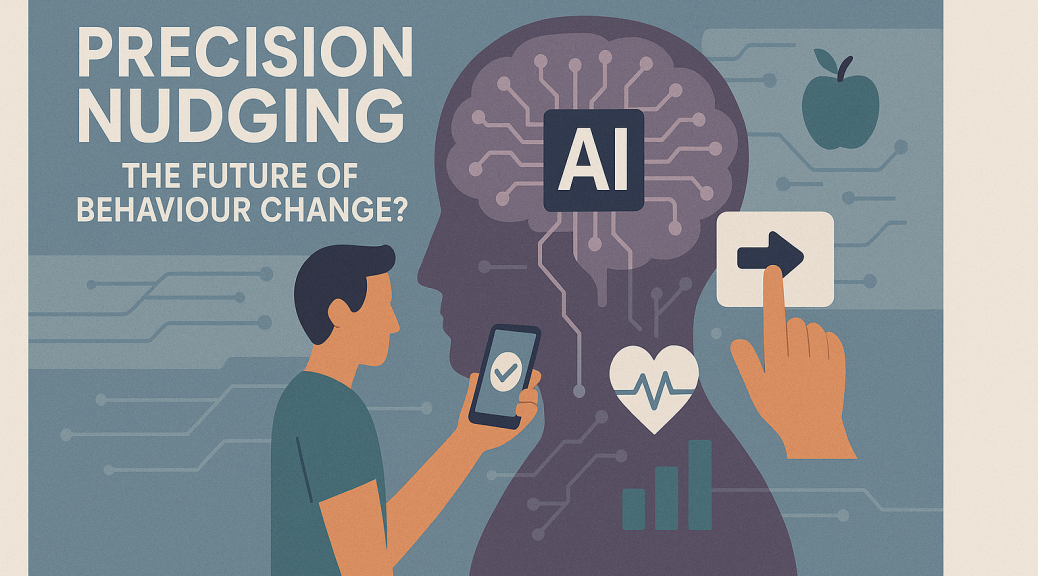We recently published a conceptual paper on the use of reinforcement learning in mitigating adverse effects of nudging, in particular behavioral spillovers and misfires. Read more on the link below:
-
Themistocleous C. and Karapanos E. (2025) ] Precision Nudging: The Future of Behavioural Change, In Christou P. (Ed.) AI in Social Research. CABI Publishing.
Abstract: Behavioural science literature has seen the recent emergence of Nudge theory, a proposition that behaviour change can be achieved by altering the “choice architecture” of our physical and digital environments while considering the boundaries of human rationality. The chapter advocates the term Precision Nudging, the use of Artificial Intelligence to advance the efficacy of nudges while mitigating their adverse effects. It discusses two methods of Precision Nudging, tailoring and timing, and their potential in addressing adverse effects, in particular, behavioural spillovers and misfires. In doing so the authors categorise nudges in reactive ones that aim at improving adverse effects and proactive ones that aim to shield individuals from future spillovers and misfires.
